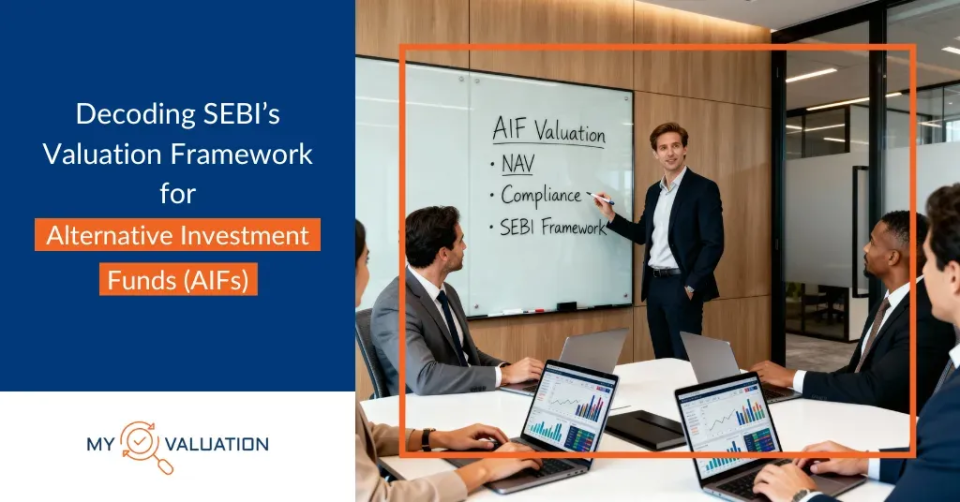Expert Valuation of Complex Financial Instruments
Accurate, compliant, and defensible valuations for intricate financial securities.
Types of Complex Financial Instruments We Value
“From ESOPs to convertible notes, our team has deep, hands-on experience valuing the instruments that shape modern financing - delivering clarity where complexity exists.” We simplify the complex.
Employee Incentive Schemes
- Employee Stock Option Plans (ESOPs)
- Restricted Stock Units (RSUs)
- Stock Appreciation Rights (SARs)
- Phantom Stock Plans
Preferred Equity & Special Rights
- Participating Preferred Shares
- Liquidation Preference Structures
- Anti-Dilution Provisions
Contingent Considerations
- Earnouts in M&A transactions
- Milestone-based payments
Convertible Instruments
- Compulsorily Convertible Debentures (CCDs)
- Optionally Convertible Debentures (OCDs)
- Compulsorily Convertible Preference Shares (CCPS)
- Convertible Notes
Derivatives & Options:
- Warrants
- Call and Put Options
- Embedded Derivatives
Whether you’re issuing employee stock options or structuring investor convertibles, we ensure every valuation is accurate, compliant, and defensible.
What Are Complex Financial Instruments?
Complex financial instruments are securities with multiple embedded components such as options, conversion rights, or contingent payoffs that make their valuation more complex than plain equity or debt Instruments.
These instruments are popular because they offer flexible financing and creative incentive structures. But their intricate features like conversion options, vesting schedules, or performance-based payouts make their valuation incredibly difficult.
A simple valuation won't work. These instruments require specialized expertise and advanced mathematical models to determine their true fair value for financial reporting and compliance.
Why Do Companies Use These Instruments?
Companies increasingly rely on complex financial instruments to balance growth, control, and investor alignment offering flexibility that traditional financing structures can’t match.
Why Do You Need Valuation of Complex Financial Instruments?
Accurate valuation isn't just good practice; it's a legal and strategic necessity for your business.
When Do You Need Valuation of Complex Financial Instruments?
In practice, a valuation must be performed at regular reporting dates (for annual/quarterly financial statements) and at specific event-driven triggers. For example, under Ind AS 113, fair-value measurement is required both initially and subsequently where relevant. Under the Companies Act, 2013 (Section 247) and the corresponding Registered Valuers Rules, any valuation of shares, debentures or securities must be done by a Registered Valuer. In the tax space, the Income Tax Act mandates FMV determinations for ESOPs (when exercised) and unquoted shares (when transferred) under Rule 11UA/11UB. In addition, every issuance of instruments (ESOPs, convertibles, etc.), fundraising event or modification of terms creates a new valuation trigger.
Why Valuation of Complex Financial Instruments Requires Expertise
These instruments cannot be valued with simple formulas. Their value is driven by multiple, interconnected factors that are difficult to model.
These valuations aren’t just complex, they are consequential. That’s why regulators and auditors expect them to be handled by specialists who understand both the numbers and the narrative behind them.
They contain embedded options (like the right to convert) and conditional payoffs (like vesting hurdles or performance triggers).
Valuing them correctly requires advanced mathematical models such as Black-Scholes, Binomial Option Pricing Model, or Monte Carlo simulations to price these features accurately.
A simple error in assumptions (like volatility or discount rate) can lead to a material misstatement in your financial statements, risking audit qualifications or regulatory penalties.

Our Approach & Methodology for Valuation of Complex Financial Instruments
We don't guess. Our process is robust, transparent, and built to withstand scrutiny.
1. Deep Analysis
We start by reviewing the complete legal agreements (Term Sheets, Shareholder Agreements) to understand every right, obligation, and trigger.
2. Model Selection
Every valuation we deliver follows a disciplined, transparent methodology designed to meet regulatory scrutiny and auditor expectations.
- Black-Scholes Model (For standard options)
- Binomial Option Pricing Models (For instruments with early exercise or complex features)
- Monte Carlo Simulation (For highly complex, path-dependent payoffs)
- Probability-Weighted (PWERM) or Option Pricing (OPM) methods for complex cap tables.
3. Rigorous Review
Every valuation undergoes a multi-step internal quality assurance review to ensure all assumptions are justified, data is accurate, and the conclusion is defensible.
Accounting Standards Compliance
Our reports are custom-made for compliance and a smooth audit. We are experts in the specific accounting standards that govern fair value measurement:
- 1. Indian Accounting Standards (Ind AS):
- Ind AS 102 - Share-based Payment
- Ind AS 109 Financial Instruments
- Ind AS 113 Fair Value Measurement
- 2. International Standards (IFRS):
- IFRS 2
- IFRS 9
- IFRS 13
- 3. US GAAP:
- ASC 718
- ASC 820
- ASC 815 (Often required for 409A reporting)
Industries & Clients We Serve
While our expertise is particularly sought after by the Technology & Startup ecosystem, we serve a diverse client base across all major industries, including Financial Services, Healthcare, Pharmaceuticals, Manufacturing, and E-commerce.
Our clients range from:
- Private Equity (PE) firms.
- Early-stage startups structuring their first ESOP pool.
- Large private and listed companies managing complex M&A earnouts.
- Venture Capital (VC) funds.
- Investment banks that finance these entities.

Use Cases & Valuation Purposes
Our valuation reports are multi-purpose and built to serve your most critical business functions:
What is the Risk of Getting Valuation Wrong?
- A low-quality or incorrect valuation isn't just a "small mistake". it's a significant business risk that can have cascading consequences.
- It can lead to audit qualifications or, in a worst-case scenario, a restatement of your financial statements.
- You risk severe tax penalties and legal disputes with regulators, investors, or employees.
- Most importantly, an unreliable valuation can damage investor confidence and hurt your credibility during your next funding round or strategic exit.
Our Transparent Valuation Process
We make a complex process feel simple and straightforward.
01
Scope & Discovery
02
Data Collection
03
Analysis & Modeling
04
Report & Delivery
05
Audit Support
Why Choose My Valuation?
In a field this complex, the right expert makes all the difference.
Key Challenges We Address
Complex valuations come with unique problems. We have the expertise to solve them.
- Estimating volatility for a private company with no public stock.
- Modeling complex capital structures and waterfalls with multiple investor preferences.
- Bifurcating (separating) the debt and equity components of a convertible instrument.
- Calculating the appropriate Discount for Lack of Marketability (DLOM).
- Backsolving a valuation from a recent funding round to calibrate inputs.
What Makes a Valuation Report "Defensible"?
A "defensible" valuation is one that can be clearly explained and justified under scrutiny. It rests on three essential pillars:
Common Mistakes We Help You Avoid
- Using a generic "one-size-fits-all" valuation template that ignores unique features.
- Ignoring critical rights like liquidation preferences or anti-dilution clauses.
- Using outdated or irrelevant market data for inputs.
- Failing to properly document assumptions, leading to inevitable audit pushback.
- Applying an incorrect discount rate that misprices the instrument's risk.



